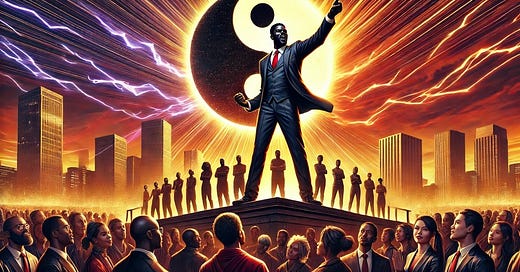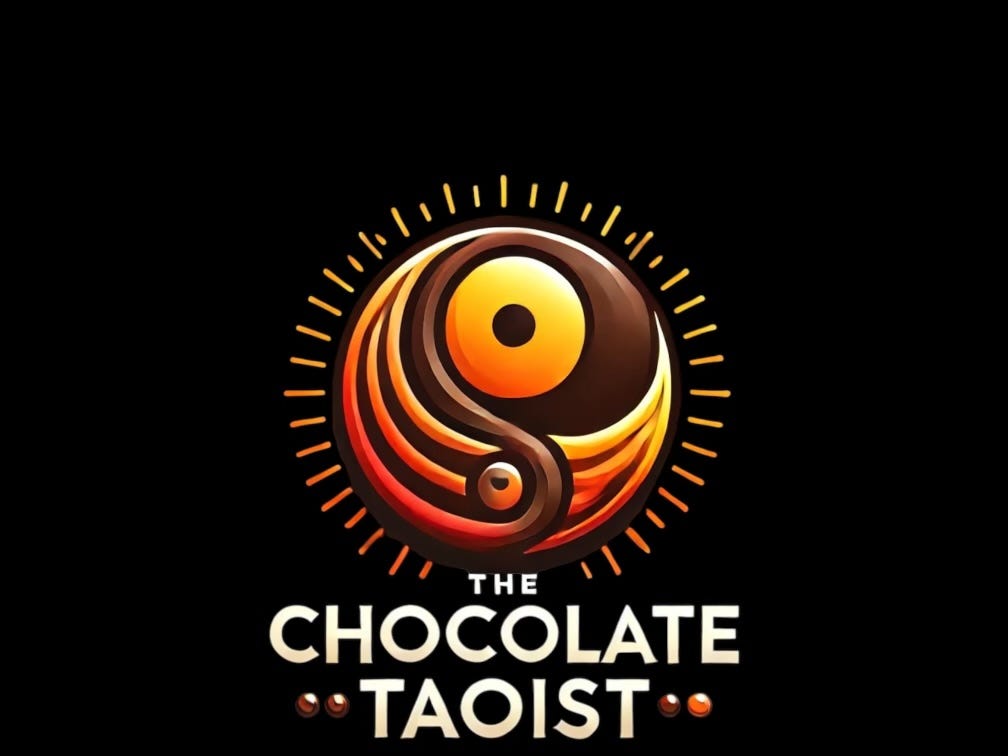For me, the word cognoscenti conjures us images of velvet-curtained salons, cigars smoldering in gilded ashtrays, and whispered Latin phrases that only the truly initiated can translate.
Derived from the Italian, meaning “people with knowledge,” a cognoscenti is a gatekeeper of elite understanding, a tastemaker with the audacity to pronounce what is worthy and what is not.
But let’s not kid ourselves—these intellectual overlords often straddle the fine line between enlightenment and pretension.
What makes a cognoscenti so fascinating (and frustrating) is their apparent command over esoteric realms. In the modern world, they’re the ones hosting TED Talks that spawn LinkedIn think pieces or curating obscure art installations in a basement gallery.
They wear their knowledge like armor, wielding it to impress, intimidate, or occasionally inspire. But in the grand allegorical sweep of Taoist philosophy, where does the cognoscenti fit? And more importantly, what would Lao Tzu or Confucius think about them?
A Taoist Take
Taoism, with its reverence for simplicity and disdain for ego, would likely raise an eyebrow at the cognoscenti’s self-assuredness. Lao Tzu, the wise old sage who floated out of history on an ox, would probably mutter something cryptic like, “The truly wise speak little, for the Tao that can be named is not the eternal Tao.” In other words: if you need to flaunt your knowingness, you’ve already missed the point.
Lao Tzu’s allegorical stance might compare the cognoscenti to the river seeking the highest mountain peak rather than embracing the humble valleys.
A cognoscenti, by virtue of their expertise, often resists the Taoist principle of wu wei—non-action or effortless flow. They strive, critique, and proclaim, while the Taoist whispers, “Be like water.”
To the Taoist, a true cognoscenti is one who does not need the title, who exudes quiet mastery without fanfare or validation.
Confucius, ever the practical philosopher, would likely take a more diplomatic stance. He might view the cognoscenti as valuable contributors to society, provided they use their knowledge to uplift others rather than aggrandize themselves.
“Knowledge without virtue is like a cart without a wheel,” Confucius might say, reminding the cognoscenti to wield their brilliance for the collective good, not personal vanity.
Modern-Day Cognoscenti: The Keepers of Today’s Gospel
In today’s world, the cognoscenti lurk everywhere: in Silicon Valley boardrooms, Manhattan art galleries, and—let’s be real—Twitter threads. Figures like Yuval Noah Harari, author of the book Sapiens, or Elon Musk, the techno-futurist messiah, might be considered modern-day cognoscenti.
Harari pontificates on the grand narrative of humanity, while Musk dares to rewrite its trajectory. Both have their admirers and detractors—hallmarks of true cognoscenti status.
In the arts, Beyoncé might be a cultural cognoscenti, curating an image and soundscape that define an era. In literature, Margaret Atwood’s dystopian visions have made her an oracle of our collective fears.
And in philosophy? Ryan Holiday has popularized Stoicism, perhaps making him the Haruki Murakami of ancient wisdom. Yet the cognoscenti title is a double-edged sword: revered by some, reviled by others who accuse them of pretentious gatekeeping.
Kicking It With The Crowd
The ultimate question is not who the cognoscenti are but how we choose to engage with them. Are they wise sages guiding us toward enlightenment, or are they just louder voices in a crowded room?
The Taoist approach would be to listen but not cling, to absorb but not idolize. The Tao teaches us to seek the natural harmony of life, a flow that neither judges nor glorifies but simply is.
So the next time you encounter a self-proclaimed cognoscenti, consider channeling Lao Tzu’s detached serenity. Smile knowingly, nod appreciatively, and let their proclamations float past like leaves on a river. And if you’re feeling cheeky, you might offer your own cryptic response: “The Tao that can be Googled is not the eternal Tao.”
In the end, the cognoscenti’s knowledge may dazzle, but the Tao reminds us that true wisdom lies in knowing when to sit back, enjoy a dirty chai, and let life unfold.
It would warm my heart for you to subscribe today as a paid member supporter.Or I’d be grateful if you’d tip me some coffeehouse love here.
Your contributions are appreciated!
Every bit counts as I strive to deliver high quality feature articles into your inbox on a daily basis. Never any paywalls, just my raw thoughts that are open to everyone on what it means to be human.






I love this: "Knowledge without virtue is like a cart without a wheel."
There are people I admire because they're knowledgeable about certain subjects, and because they help us to stay calm and rational in such stressful times. But I don't think anyone should be put on a pedestal. Especially those who want to be put on one.
Thanks for sharing this Taoist and Confucian wisdom, Diamond-Michael.
I am with Confucius on this one. What is important is The Knowing, as in Know Thyself. What anyone does about something is the Tao. Caution must be had in relating to those with no "knowing" or having disdain for knowledge. Like the water, they will find their 'lowest place' naturally while others find a higher plane of thought and response.